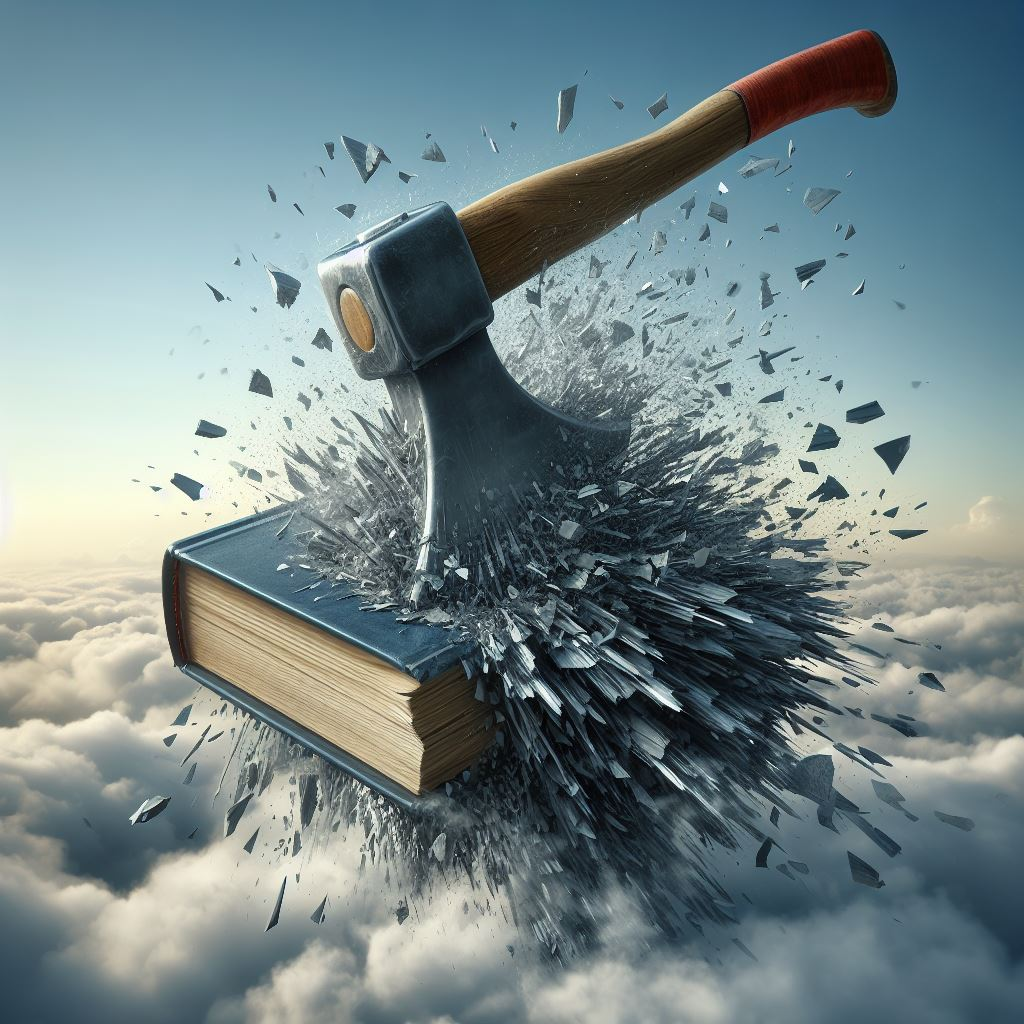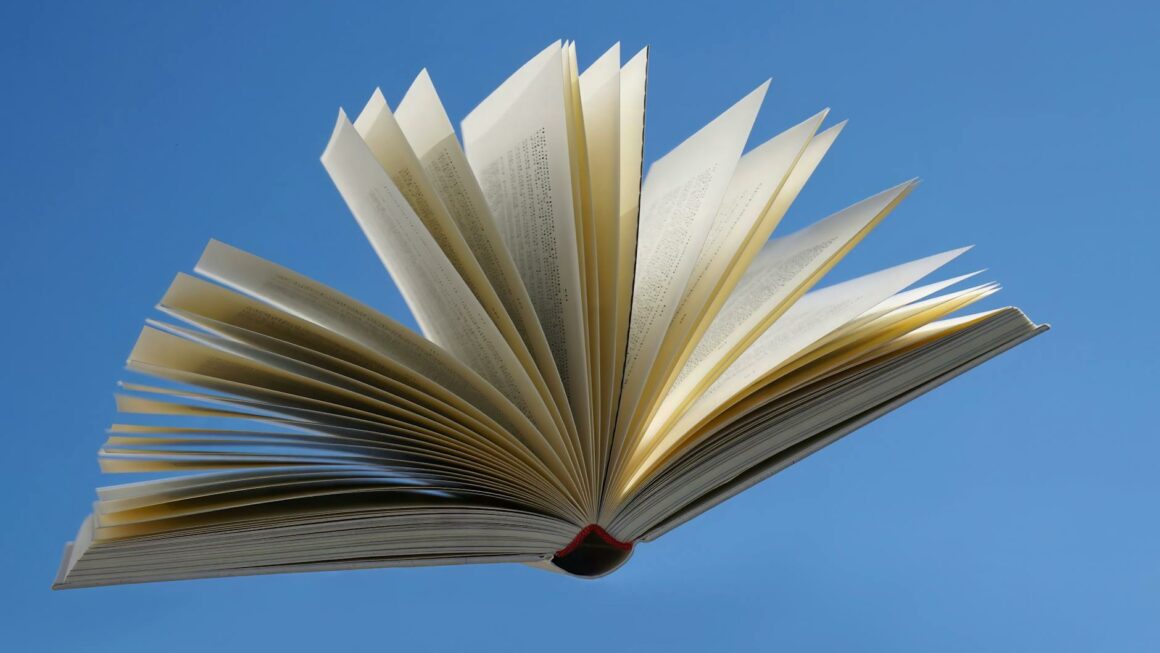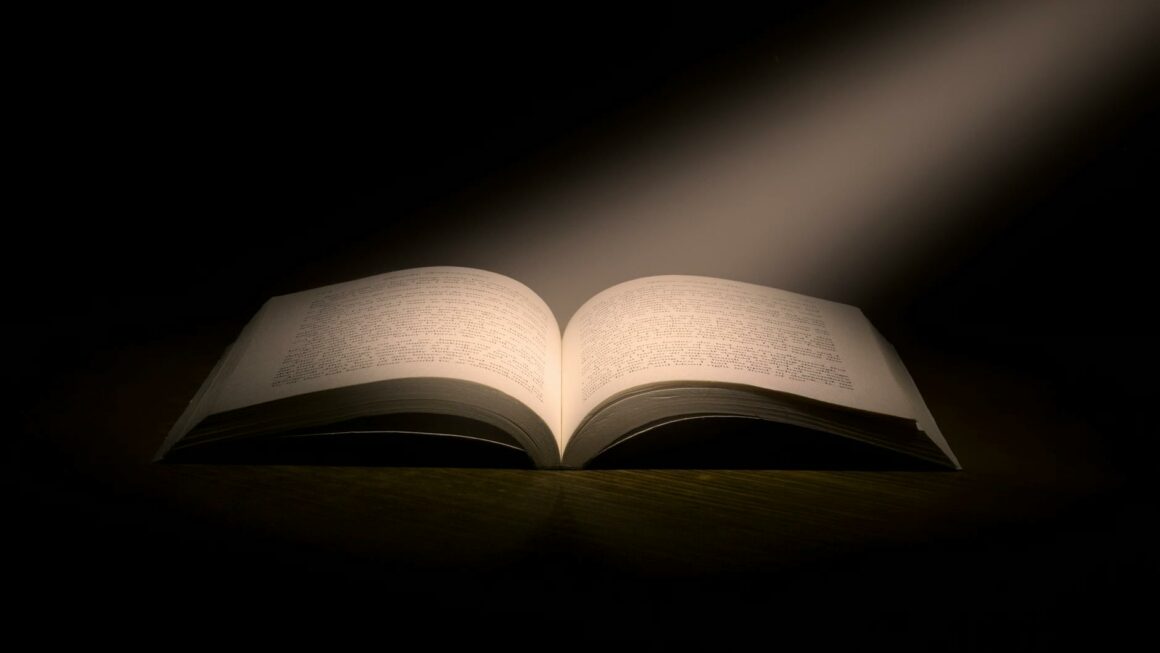Here in these “Chronicles of Absurdia”, we don’t just tiptoe through the tulips of language; we leap into its very thicket, often finding ourselves tangled in its intricate vines of verbosity and verve. I often find myself entranced by simple turns of phrase uttered or penned by souls from centuries past. It’s quite stunning to me how absurd the power of language truly is, even when translated from one language to another.
Russian-Ukrainian writer Nikolai Gogol, in a moment of stark clarity, put this into perspective. He once declared, “A word aptly uttered or written cannot be cut away with an axe.” Just reading those words, you can almost picture him scribbling feverishly by candlelight, chuckling to himself about the indelible nature of a well-crafted phrase. Gogol knew, as we all secretly do, that words wield an absurd kind of magic –- they’re able to conjure realities and shatter illusions, often in the same breath.
It’s in the careful crafting of words, a marriage of melody and meaning, that their true power is revealed. A word aptly uttered or written takes on a life of its own, impervious to destructive forces. As Gogol so eloquently expressed, the spirit of the words transcends their physical form, the ideas and expressions immortalized in ink.
In today’s escapade through the wilderness of words, let’s ask ourselves: Isn’t it downright bizarre how these little squiggles and sounds can ignite revolutions, mend hearts, or make us chuckle at the sheer absurdity of everything?
So, guided by Gogol’s timeless insight, let’s embark on a journey to unravel the enigma wrapped in the riddle that is language. Let’s find the fun in the fundamental, the jest in the judicious, and, of course, the absurd in the articulate. Welcome aboard!
The Double-Edged Sword of Language
Language is a delightful and, at times, devious concoction of letters and sounds. It’s a veritable Pandora’s box that we blithely open every time we open our mouths or set pen to paper. It’s a bit like wielding a lightsaber in a crowded room – dazzling, dangerous, and decidedly unpredictable.
The 26 characters of the English alphabet can be arranged to declare undying love or provoke a belly laugh. Yet, they can also be mixed around to inadvertently start a family feud lasting three generations. How can these little symbols and sounds so seemingly innocuous hold such power?
Learning our alphabet and the sounds associated with it is like being handed a toolkit where the hammer can just as easily construct a birdhouse or whack a thumb (or a metaphorical equivalent thereof). Think about how, “I love you” and “I loathe you” are just a couple of vowels apart, yet worlds apart in their impact. How many of us have been both architects and demolition experts in our relationships, using the same set of linguistic tools?
Let’s face it, we have to be able to find humor in these linguistic absurdities. We’re all linguists and bunglers wrapped into one, poets and faux pas artisans, capable of creating sonnets and gaffes with equal flair.
The power of language can be wielded as a tool for both creation and destruction. It can ignite the fires of love, stitch together the wounds of betrayal, and inspire the noblest endeavors. Yet, like a double-edged sword, it can also cleave through the bonds of friendship, sow the seeds of discord, and summon the darkest storms.
Language is a bit like cooking a soup. One day, our words can be a perfectly seasoned stew, warming and nourishing, yet the next, an over-salted concoction that nobody wants to swallow. Yet, we keep cooking, keep speaking, and keep writing because, in this grand, often nonsensical kitchen of life, our words are the ingredients we can’t do without.
So, whatever we do, and how ever we choose our words, language remains our most beloved frenemy. It’s a tool for both creation and destruction, wrapped in a riddle, and served with a side of absurdity.
The Immortality of Words
Fortunately, language isn’t just useful in the here and now. In fact, it can even become a time-traveling device of sorts. Words are how we can find ourselves in a conversation with the likes of Shakespeare, so many centuries after his passing, simply through reading his works. Words allow us to have an all-access pass to the greatest minds in history, only without the hassle of inventing a real time machine.
Isn’t it a hoot to think that the same words that tickled the fancy of a Renaissance dandy or ruffled the feathers of a Grecian philosopher can do the same to us today? We’re reading the same lines that were once brand new, hot off the quill — even if sometimes the translation is a bit wonky. It’s as if words are little immortal elves, skipping merrily through time, unaffected by the wrinkles and grey hairs that plague the rest of us.
I’ve long been attracted by the irresistible allure of an idea well-expressed. Properly wielded, language transcends the limitations of the corporeal, etching itself into the fabric of time and space. Unyielding to the ravages of the centuries and millennia, we still today can read the words of prophets, poets, dreamers, and doyens of history.
Imagine Plato, for instance, sitting in his toga and sandals, etching his thoughts into history. Fast forward a couple millennia, and here we are, in our pajamas, nodding along with a cup of coffee in hand, as if to say, “Good point, Plato. Pass the sugar, will you?”
The irony is delicious. Here we are, creatures of the digital age, where information moves at the speed of light, and yet still we find ourselves captivated by the static, unchanging words of those long gone. Our high-tech gadgets may age faster than a banana in the sun, but “To be or not to be” remains evergreen.
Words are the real MVPs in the game of chasing immortality. They don’t need anti-aging cream or fancy preservation techniques. They just hang out in old books, on monuments, or in the cloud, waiting for someone to stumble upon them and whisper, “Hey, this ancient dude really gets me.”
So, hats off to the immortal words, the silent time travelers in our midst, reminding us that human thoughts, fears, and joys are timeless. If that’s not a reason to chuckle and raise your glass to the ancient writers, I don’t know what is. Here’s to words, the ultimate conquerors of time and space, with a side of eternal wit!
The Everlasting Impact of Words
In both print and sound, words are less like inanimate strings of letters and sounds and more like living, breathing entities, perpetually creeping and crawling through the corridors of time.
They wrap like vines around society’s foundations, resisting the axe of time and change. It’s absurd yet marvelous how echoes from the past still shape our present, often in unseen and unintended ways. These cheeky little minstrels of meaning not only knock on the doors of our minds, but also set up camp, brew tea, and refuse to leave.
These words, even when ancient and worn, still have the audacity to shape our modern world. They’re like the great-aunts and uncles at a family reunion, imparting wisdom and occasionally embarrassing anecdotes, unaffected by the rolling eyes of younger generations. “Remember when…” they begin, and suddenly, we’re transported to battles long fought, loves long lost, and triumphs long celebrated.
Consider how the words of philosophers, poets, and even the occasional madcap monarch have clung to the walls of history. They refuse to be scrubbed away by the sands of time or the latest cultural trends. It’s as if Shakespeare, Austen, and their merry band of wordsmiths dipped their quills into a sort of linguistic superglue, ensuring their words would stick around, come hell or high water.
Lest we take our dear words too seriously, we can view them as timeless gatecrashers in the party of the present. They’re the uninvited guests who turn out to be the life of the party, regaling us with tales of yore, and occasionally offering a nugget of wisdom just when we need it most.
In a world where everything is fast-paced and fleeting, the steadfastness of words is both absurd and magnificent. These echoes of our collective past resound through the canyon of time, reminding us that though empires may fall and technologies may evolve, a well-turned phrase is truly eternal.
#QuoteQuest
My fellow time-travelers and intrepid seekers of sagacity, I entreat you to embark on a #QuoteQuest. Your mission: dive into the dusty, dog-eared pages of history to fish out a quote – not just any quote, but one that sings (even if a bit off-key) to the tune of our current life conundrums.
Select a century or a region, like a culinary connoisseur choosing the perfect cheese to accompany their wine, and unearth a quote that resonates with a personal goal or pickle you’re currently pondering. It’s a bit like asking a wise old tree for advice, except the tree is a book, and the advice is several hundred years old.
Let’s say you’re grappling with the eternal struggle of waking up early for that jog you’ve promised yourself you’d do. “Early to bed and early to rise makes a man healthy, wealthy, and wise,” quoted Benjamin Franklin. Well, Ben, that’s easier said than done when the siren song of late-night Netflix binge-watching beckons, isn’t it?
Perhaps you’re wrestling with the art of patience in a world where instant gratification is king. To this, a stroll through the serene gardens of Eastern philosophy might offer Lao Tzu’s timeless whisper, “Nature does not hurry, yet everything is accomplished.” Patience, it seems, was as much a virtue in ancient China as it is in the modern world of fast food and faster internet.
This quest isn’t just about just finding a quote you identify with, though. It’s also about forging a connection with another human mind who has tread the path of life before us. You’ll soon realize that humans have been humans, facing the same old things, no matter what they were wearing or doing.
So, grab your metaphorical shovel and start digging through the annals of history. Who knows what nuggets of wisdom you might uncover, dust off, and apply to the comedy of errors that is modern living? May your #QuoteQuest be fruitful, your connections to the past amusing, and your resolutions to today’s challenges a tad more enlightened. Happy hunting!
Closing Thoughts
As we wind down this chapter of “Chronicles of Absurdia,” let’s pause and ponder the peculiar power packed into our parlance. Each word we utter, each sentence we scribble, leaves a footprint in the wet cement of time – messy, perhaps, but undeniably permanent.
Every chuckle-inducing quip, every tear-jerking tale, and every accidentally-sent text message – they’re all little pieces of you, floating out into the universe. We leave breadcrumbs of our essence everywhere we go, in the form of words, unintentional or not.
Words bestow upon us a power that’s both wonderful and slightly terrifying; it’s like being handed the reins to a benevolent but slightly unpredictable dragon. You can have it breathe fire to warm a heart, or in a less fortunate turn of events, accidentally incinerate your neighbor’s metaphorical cat. But, that’s the beauty and the burden of our power of language.
Through the written word, we can still experience the passionate speeches delivered by statesmen and visionaries. We can picture these orators, standing tall like mighty oak trees, their roots reaching deep into the fertile soil of their beliefs. Like leaves, their words flutter on the winds of change as we speak them, leaving lasting imprints on our own hearts and minds as much as those who first heard them.
Armed with the power of language, we each hold within our grasp the keys to the kingdom of creation. The gift of expression is a treasure beyond compare. Truly, as Gogol put it, a word aptly uttered or written cannot be cut away, for it’s the embodiment of a little part of ourselves that we can share with everyone else. Let’s wield our words with care and the absurd, awesome responsibility that comes with our verbal and written prowess.
~ Amelia Desertsong, January 26th, 2024



